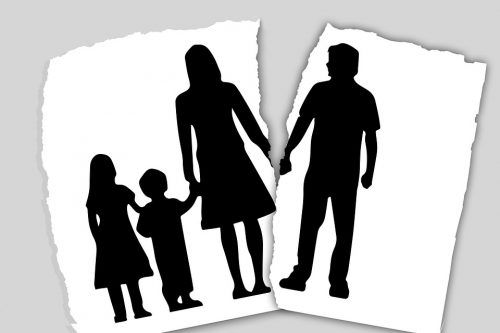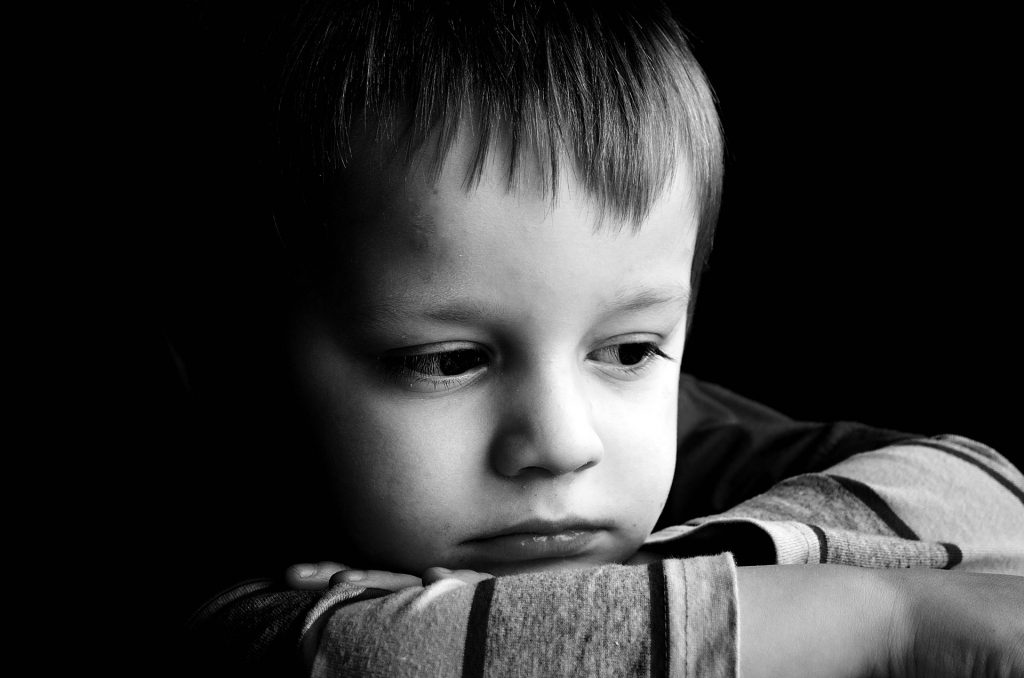Broken marriages and conflict-ridden families are sad realities of our world today. While everyone is affected, the most challenging blow of pain is always received by the children.
The heart-pounding reality is when once happy and beautiful marriages break apart in divorce, parents, who were just moms and dads before, start playing different roles in the life of their children. According to William Bernet, M.D. and co-authors, “We define parental alienation as a mental condition in which a child—usually one whose parents are engaged in a high-conflict divorce—allies himself or herself strongly with one parent (the preferred parent) and rejects a relationship with the other parent (the alienated parent) without legitimate justification.”

Here are five symptoms of parental alienation that brutally affect and sadly emanate from children:
Constant Complaints
This symptom is one of the most neglected ones because almost every child may have some complaints. Either they think their parents are too strict on disciplining them or they’re either too lenient not to care at all. Most people would think that these complaints are petty demands, but big and serious problems start small.

When psychologists speak with kids who have come to alienate one of their parents, they start their stories with complaints. Upon digging deeper, they would give out silly and unfounded answers. Often, these are things they hear from the preferred parent about why they don’t like to see the alienated parent anymore.
One-Sided Understanding
It is a more obvious symptom of parent alienation. In any argument, children would choose the side of the preferred parent regardless of the circumstances. There is an automatic response to side with just one, no matter what. It would continue towards rationalizing why the preferred parent is always right. Susan Heitler Ph.D. says that “An alienating parent who is higher in narcissism may aim to use the children as weapons or pawns in his/her battle to “destroy” the other parent. These individuals often claim to be protecting the children against the “evil” other.”
Complementing this are borrowed scenarios seen when psychologists ask a child about situations wherein the alienated parent showed negative behavior, then the child would narrate details the same way the preferred parent tells the story. The picture that the preferred parent paints in the minds of their children become their view of their alienated parents.
Black And White Thinking
When talking about personalities, people would almost always describe somebody with a mix of positive and negative traits. There’s always a gray area. However, when parent alienation exists, gray regions suddenly become distinctly black or white. The alienated parent becomes the bad person and the preferred parent, the good one.
This behavior is exemplified in children’s statements such as “Dad is the devil. Mom is the angel.” There is a sudden generalization about the character of the parents. It appears like the preferred parent entirely did nothing wrong, while the alienated parent gets all the blame for never getting anything right.
Spread Of Hate
Unfortunately, it sometimes appears normal that when children are with their peers, they rant about how they “hate” their parents for being too sneaky or imposing. However, when these rants become more serious, they turn into lingering feelings of hatred and even animosity that they share with others who would get the same negative perspective.

Not only that, sometimes, the children’s hatred towards their targeted parents spills over to other people and things related to that parent – may it be extended family members, pets, friends, and even workmates. Children start to hate everything and everyone that relates to their targeted parents.
Lack Of Guilt And Justification
The lack of guilt and justification is a scarier symptom of parent alienation. After children perceived the alienated parent so negatively, they no longer feel guilty. They become disrespectful, and they no longer feel bad about pushing their parents away. It no longer bothers them that they have stopped honoring their parents.
But the scariest part is when in the hearts of the children, they believe they are doing the right thing because the alienated parent deserves to be mistreated and unloved. It is the scariest because it involves a heart issue, a complete turn-away of compassion against the alienated parent, and a cutting off of parental bond.
While these symptoms can be perceived as early warning signs of the possibility for children to alienate their parents, it could be more fitting to understand them as aftermaths. These are the after-effects of children having to bear that emotional baggage of a broken family. “If you are a targeted parent subject to this kind scapegoating your intuition may be to try to remain “neutral” in order to avoid embroiling the child further in parental conflict. You may strive to remain “neutral” by being quiet and refrain from exacerbating the child’s confusion,” Molly S. Castelloe Ph.D. points out. The way towards healing and restoration is nothing short of difficult and painful, but time will eventually bring back the lost, patch up the broken, and mend the torn.
